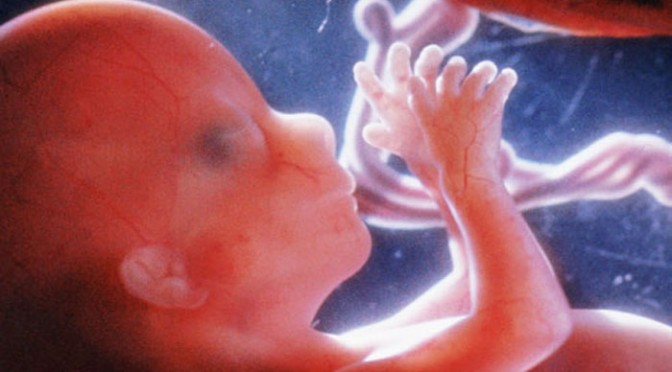Tonight legislation to protect pain-capable unborn children from the lethal violence of abortion passed on a voice vote through the Minnesota Senate Health and Human Services Finance and Policy Committee. It now advances to the Senate Judiciary and Public Safety Finance and Policy Committee. Minnesota Citizens Concerned for Life (MCCL) strongly applauds the vote.
“We have many laws, customs, and traditions that seek to protect others from pain,” said MCCL Legislative Director Andrea Rau in testimony before the committee. “Should we not extend this to the most vulnerable child—the unborn child?”
The Pain-Capable Unborn Child Protection Act (SF 1609 and HF 1312), authored by Sen. Michelle Benson (R-Ham Lake) and Rep. Peggy Scott (R-Andover), would prohibit abortion after 20 weeks post-fertilization (about 22 weeks gestation), when scientific evidence shows that unborn children can feel pain. Minnesota law currently allows abortion at any time during pregnancy and for any reason. The bill includes an exception when abortion is necessary to preserve the life of the mother or to prevent “substantial and irreversible physical impairment of a major bodily function.”
A large body of anatomical, physiological, and behavioral evidence indicates that unborn children can experience pain at least by 20 weeks after fertilization. Abortions at this stage usually involve the dilation and evacuation (D & E) method, which dismembers the unborn child and removes her from the womb piece by piece.
Click here to sign up for pro-life news alerts from LifeNews.com
“Unfortunately, in Minnesota, the number of pain-capable children forced to endure this grotesque procedure has been growing substantially,” Rau said, noting that Minnesota saw a nearly 500 percent increase in abortions after 20 weeks post-fertilization from 2013 to 2017.
“A pain-capable unborn child is a member of our human family,” she concluded, and ought to be “recognized as such and protected by law.”








